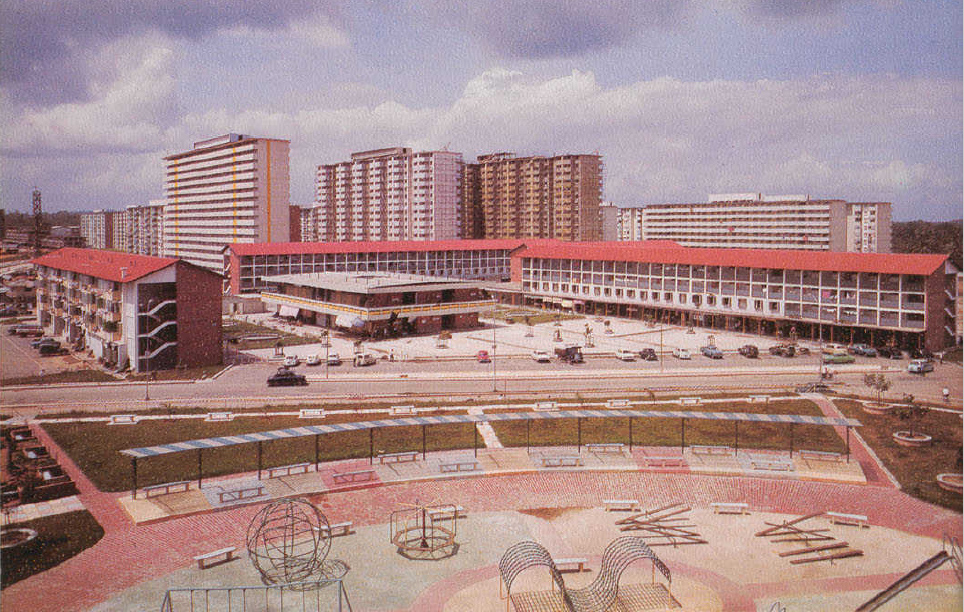HDB introduced the design of 5-room point block flats in 1971 as a bold and imaginative move which would eventually help to bring down the cost of middle-class housing as the economy was improving at that time. Therefore, applicants whose income ranged from $1200 to $1500 per month would be eligible for registration to apply for 5-room flats. Each level of a 5-room point block served 4 units for privacy purposes. Most of these blocks stood at 25 storeys high.
 |
5-room standard point block floor plan
5-room Improved point block floor plan
5-room slab block floor plan
A typical 5-room Standard flat consist of 3 bedrooms, a living room, a dining room and 2 bathrooms cum toilets located in the kitchen and master bedroom of the flat. An Improved flat has an additional storeroom and extension of the master bedroom. When the first batch of 5-room point block units were completed in 1973 in the Farrer Road, Zion Road and Kallang Basin area, these flats cost $27500 in a new town and the prices shot up to $30000 the following year. The Improved units were more expensive at $35500. Other districts like Toa Payoh, Marine Parade, Telok Blangah and Bedok also built similar flats like these. A rare 5-room slab block design was also built in the 1970s which served only 2 units on each staircase just like 4-room flats and these flats could only be found in Ang Mo Kio, Bedok, Eunos and Clementi.
Farrer Road Estate with the point block(far left), 1973
Zion Road Estate in Bukit Ho Swee, 1973
Newly-completed point blocks at Chai Chee, 1974
Geylang Bahru in Kallang Basin, 1974
Marine Parade point blocks, 1974
Telok Blangah point blocks, 1974
Spottiswoode Park in Tanjong Pagar built by the Port of Singapore Authority(PSA), 1975
Bedok South 25-storey flats, 1976
A newly-completed point block at Lorong 8 Toa Payoh, 1976
New point blocks at Clementi New Town, 1978
For more information on the earlier point block designs, click on the following link below:
|















Comments
Post a Comment